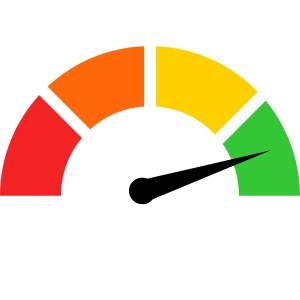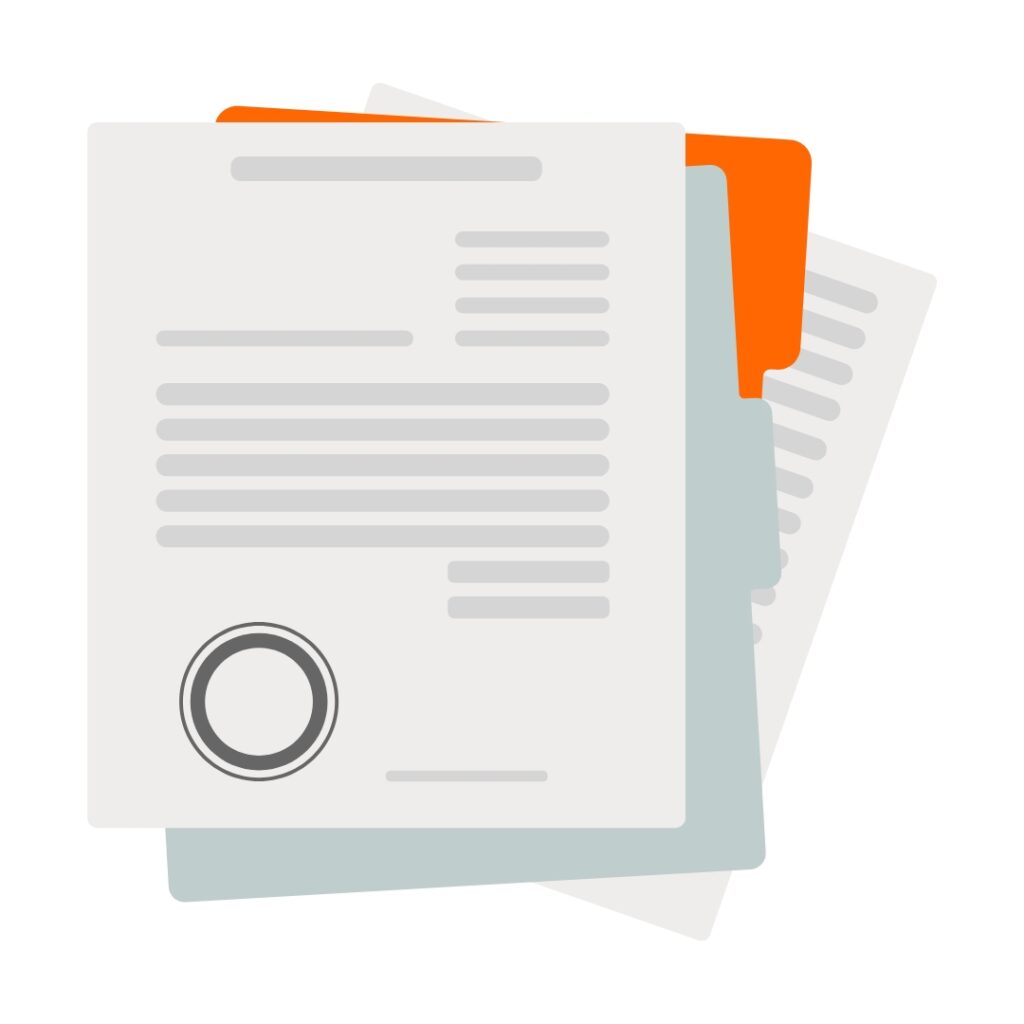
A Loan Against Property (LAP) is a straightforward financial concept. Essentially, it involves using your property as collateral to secure a loan from a bank or financial institution. This allows you to access the value of a property you own without selling it. The property can be a residential house, a piece of land, or even a commercial building. The lender retains the property documents until the loan is fully repaid. If, for any reason, the borrower is unable to repay the loan, the lender has the right to take possession of the property to recover the loan amount. This practice is common in South Africa and provides property owners with a means to access funds without relinquishing their assets.
Need a loan > Click Here to Fill Out Your Application
Key Takeaways
- A Loan Against Property (LAP) enables property owners to access funds by offering their property as collateral.
- The loan amount is typically a portion of the property’s current market value, facilitating substantial borrowing.
- LAP interest rates are often more favorable than unsecured loans due to the collateral involved.
- Repayment is executed through monthly installments, known as EMIs, encompassing both the principal amount and interest.
Why Consider a Loan Against Property?
There are several reasons why someone might consider taking out a Loan Against Property. Firstly, these loans typically offer higher loan amounts compared to personal loans, making them a suitable choice for those requiring a substantial sum of money, perhaps for a major project or business investment. Additionally, as the loan is secured against a property, the interest rates are often lower than unsecured loans, which can make the repayment process more manageable. Lastly, the repayment tenure for such loans is usually longer, providing borrowers with more time to repay the amount. Therefore, if you’re a property owner in South Africa in need of funds, a Loan Against Property could be a viable option to consider.
Calculate your potential repayments with our loan repayment calculator, a tool designed to help you plan your finances effectively when considering a loan against property.
Understanding the Basics
A Loan Against Property (LAP) is a type of loan where you use your property as collateral to secure a loan from a bank or financial institution. In simpler terms, you’re borrowing money and offering your property as security to ensure you’ll repay the loan. The property you pledge can range from a house or a flat to a piece of land. It’s like telling the bank, “Hold onto my property documents, and if I fail to repay the loan, you can take my property.” However, as long as you meet your repayment obligations, your property remains yours. The bank retains the property documents until the loan is fully repaid.
How Does It Differ from Other Loans?
There are various types of loans available, so how does a Loan Against Property differ? The primary distinction lies in the name itself – it’s a loan against your property. This means the loan is secured by your property. If we compare this to a personal loan, for example, personal loans are unsecured, meaning you don’t need to provide any asset as collateral. Consequently, personal loans often come with higher interest rates compared to a Loan Against Property.
Another difference is the loan amount. With a Loan Against Property, the amount you can borrow is typically determined by the value of the property you’re using as collateral. This can allow for larger loan amounts compared to other types of loans.
Lastly, the repayment period for a Loan Against Property is generally longer, providing you with more time to repay the borrowed funds.
A loan against your property can unlock equity, but what happens when bond repayments spiral out of control? Financial Strain on South African Homeowners with Bonds reveals the financial balancing act many homeowners are losing.

Eligibility Criteria
Who Can Apply?
When it comes to applying for a Loan Against Property, not everyone is eligible to simply walk into a bank and get approval. There are specific criteria that banks and financial institutions consider. Firstly, the applicant should be an adult, typically 18 years or older. Both salaried individuals and self-employed individuals can apply. For salaried individuals, banks often evaluate job stability, which refers to how long you’ve been in your current job. For self-employed individuals, they might assess how long you’ve been in business. Having a steady income is a significant advantage because it demonstrates to the bank that you have the means to repay the loan. Your credit history plays a crucial role. A good credit score can enhance your chances of approval and may even result in a more favorable interest rate. Lastly, the property you’re pledging as collateral should be in your name, signifying that you are the legal owner.
Property Types That Can Be Mortgaged
In South Africa, various types of properties can be used as collateral to secure a Loan Against Property. Common property types include:
- Residential properties: This can encompass houses, flats, or apartments, whether it’s your primary residence or a secondary home, as long as you are the legal owner.
- Commercial properties: If you own office spaces, shops, or other commercial buildings, these can be offered as collateral for a loan.
- Industrial properties: Factories, warehouses, and other industrial spaces can also serve as collateral.
- Vacant land: Even if the land has no structures on it, owning a piece of land can still hold value and be used to secure a loan.
It’s important to note that the condition and location of the property can impact the loan amount. Properties in prime locations or those in good condition may secure a higher loan amount compared to properties in less sought-after areas or those requiring significant repairs.
Loans secured against high-value assets aren’t limited to homes. If you’re not ready to risk your property, you could borrow money against your car instead. This is a flexible way to unlock equity without losing your roof over your head.
» Find out more: What’s behind a Credit Agreement?
Benefits of Loan Against Property
Higher Loan Amounts
One of the standout benefits of a Loan Against Property is the potential to borrow a substantial sum of money. Since the loan is secured by a tangible asset, banks and financial institutions are often more willing to offer larger loan amounts. The loan amount is typically a percentage of the property’s market value. For example, if you own a property in a prime location in Johannesburg or Cape Town, its value might be quite high, allowing you to borrow a significant sum. This makes a Loan Against Property a preferred option for those looking to finance significant expenses, whether it’s expanding a business, funding a child’s overseas education, or undertaking a major home renovation.
Lower Interest Rates Compared to Unsecured Loans
Interest rates can significantly impact the total amount you repay over the life of a loan. With a Loan Against Property, the interest rates are often more favorable compared to unsecured loans. Why? Because the bank has your property as collateral, which reduces their risk. If you compare the rates to something like a personal loan, which doesn’t require collateral, you’ll often find that Loan Against Property rates are more budget-friendly. This means monthly repayments can be more manageable, and over time, you might save a substantial amount of money.
Longer Repayment Tenure
Having an extended repayment period can be advantageous, especially when dealing with loan repayments. A Loan Against Property typically offers a longer repayment period. In many cases, borrowers can have up to 15 years or even more to repay the loan. This flexibility allows for smaller monthly installments, making it easier on the budget. It’s particularly useful for those borrowing significant sums and needing an extended period to spread out their repayments. With the option to choose between fixed and floating interest rates, borrowers can select a repayment structure that best suits their financial situation.
Flexible Repayment Options
Many lenders offer a variety of flexible repayment options, allowing borrowers to choose an option that aligns with their financial situation. This flexibility may involve selecting between shorter or longer repayment periods, fixed or variable interest rates, and other variations.
Interested in more ways to leverage property for financial gain? Check out our insights on flipping houses for a comprehensive understanding of property investment strategies.
The Application Process
Documents Required
When applying for a Loan Against Property in South Africa, you’ll need a set of documents to confirm both your identity and the legitimacy of the property. Here’s a basic checklist:
- Proof of Identity: This can be your South African ID book or card.
- Proof of Residence: Utility bills or a bank statement with your address will suffice.
- Proof of Income: Salaried individuals may need recent payslips and an employment letter, while self-employed individuals can use bank statements and financial statements for this purpose.
- Property Documents: These should include the title deed, building plans, and any other relevant paperwork that demonstrates ownership and property details.
Please note that different banks or financial institutions may have slightly different requirements, so it’s advisable to directly verify with them.
Steps to Apply
The application process for a Loan Against Property is generally straightforward:
- Research: Begin by researching various banks or financial institutions. Examine their interest rates, loan amounts, and terms to find one that meets your requirements.
- Initial Application: Once you’ve selected a lender, you can typically initiate the application process online. Complete the necessary details and submit the initial application.
- Document Submission: Following the initial application, you’ll be requested to provide the required documents. Some banks may offer a doorstep service for document collection from your home.
- Property Valuation: The bank will then assess the value of your property. They may send a professional to inspect the property and determine its market value.
- Final Approval: After confirming that everything is in order, the bank will grant the final approval, and the loan amount will be disbursed.
Evaluation and Approval
Once you’ve submitted all the documents and the property has been valued, the bank will evaluate your application. They will consider factors such as your income, credit history, the property’s value, and other relevant information to determine your eligibility for the loan. If all requirements are met, the bank will approve your loan. The processing time for this can vary, but once approved, the loan amount is typically transferred to your bank account. You can then use the funds as needed, and the repayment process will commence in accordance with the agreed-upon terms with the lender.
How to Apply for a Loan with Arcadia Finance
Applying for a loan at Arcadia Finance is straightforward and accessible. Start your application by visiting our website, where our dedicated and experienced team is available to assist you with any inquiries you might have throughout the process. We will require some basic information from you, including details about your income and expenses, as well as your desired loan amount and preferred repayment term. After submitting your application, our team will promptly review the details and respond with a decision as soon as possible.
How to Increase Your Chances of Loan Against Property Approval
Securing approval for a loan against property requires careful planning and preparedness. Here are some strategies to enhance your chances of approval:

Maintain a Good Credit Score
Ensure your credit history is excellent. A high credit score assures lenders of your creditworthiness and ability to repay.

Provide Accurate Property Valuations
Submit a realistic valuation of the property offered as collateral. Precise assessments can positively influence the lender’s decision.

Demonstrate Strong Repayment Capacity
Present solid evidence of your capacity to repay the loan. This may include stable income proof, additional revenue sources, and a healthy debt-to-income ratio.

Organize Documentation
Have all necessary documents, such as proof of income, property papers, and identification documents, ready and organized. Complete documentation expedites the approval process.

Highlight Additional Income Sources
If you have supplementary income sources besides your regular earnings, ensure these are emphasized in your application. This can improve your loan eligibility by demonstrating stronger financial health.
Interest Rates and Charges
Factors Influencing Interest Rates
When you’re contemplating a Loan Against Property, one of the initial aspects you’ll likely consider is the interest rate. However, have you ever wondered what determines these rates? Multiple factors come into play:
| Factor | Description |
|---|---|
| Applicant Profile Overview | Income: Higher income suggests better loan repayment capacity, possibly leading to more favorable rates. Age: Older borrowers are preferred; younger ones might face higher rates due to shorter credit histories. Previous loans: A good repayment history can lower rates, while multiple ongoing loans might increase perceived risk. |
| Credit Score | A higher score can secure more favorable interest rates, reflecting reliability in loan repayments. |
| Loan Amount and Tenure | The size of the loan and the repayment period can affect interest rates. Larger loans or longer terms might carry different rates than smaller, shorter-term loans. |
| Type of Property | The nature of the property (residential, commercial, vacant land) being pledged influences the interest rate. |
| Loan-to-Value Ratio (LTV) | This ratio indicates the loan amount relative to the property’s value. Higher LTVs might lead to higher interest rates due to greater risk. |
| Economic Factors | Broader economic conditions, like the repo rate set by the South African Reserve Bank, also impact interest rates. |
Associated Fees and Charges
In addition to the interest rate, there are other expenses to consider when obtaining a Loan Against Property:
Processing Fee: This is a one-time fee that covers the expenses associated with processing your loan application. It is typically calculated as a percentage of the loan amount.
Legal and Technical Evaluation Fee: This covers the costs of legal scrutiny of your property documents and the valuation of your property.
Prepayment Charges: If you decide to pay off your loan earlier than the agreed-upon tenure, some banks may impose a fee. However, this may not always be the case, so it’s advisable to check with your lender.
Late Payment Fees: Missing an EMI (Equated Monthly Installment) payment can result in a penalty. It’s wise to set up reminders or automatic payments to avoid this.
Document Retrieval Charges: Once you’ve settled your loan, there might be a fee for retrieving your property documents from the bank’s custody.
While a Loan Against Property can be a valuable means of accessing funds, it’s crucial to be well-informed about all the associated costs. This ensures there are no unexpected surprises down the road and enables you to make an educated decision.

Repayment and Foreclosure
Understanding EMI and Repayment Schedules
When you secure a Loan Against Property, you commit to reimbursing it through periodic payments, typically on a monthly basis. These regular payments are commonly referred to as Equated Monthly Instalments (EMI). Your EMI is determined based on the loan amount, the interest rate, and the loan tenure. It’s structured to be a fixed amount, simplifying your financial planning and budgeting.
Here’s a straightforward breakdown of how EMI operates:
Principal: This represents the sum you borrowed. Throughout the loan’s tenure, you’ll repay the entire principal amount.
Interest: This denotes the expense of borrowing, calculated according to the interest rate specified by your lender. It is distributed over the loan’s tenure.
Your EMI merges both the principal and the interest, ensuring that by the conclusion of your loan’s tenure, you’ve paid back the complete loan amount along with the accrued interest.
Most banks and financial institutions in South Africa will furnish you with a repayment schedule. This schedule offers a comprehensive breakdown of your EMIs, delineating the portion of each EMI allocated to the principal and the segment allocated to the interest. With time, as you repay more of the principal, the interest component of your EMI diminishes.
Prepayment and Foreclosure Rules
Life is uncertain, and occasionally, you may find yourself with surplus funds on hand. In such scenarios, you may contemplate settling your Loan Against Property ahead of the scheduled timeframe, known as prepayment.
Prepayment can be either partial, reducing your future EMIs by paying off a portion of your loan, or full, where you settle the entire loan amount. While prepayment can result in savings on future interest payments, some banks may impose prepayment charges, particularly if you are on a fixed interest rate.
Foreclosure, on the other hand, involves settling the entire loan amount at once, closing the loan before its designated tenure. Similar to prepayment, there may be associated charges with foreclosure, so it’s advisable to inquire with your lender.
If you’re considering prepayment or foreclosure, be sure to read the fine print and understand any fees or charges. That way, you can make a decision that truly supports your financial best interests.
The Impact of a Loan Against Property on Your Credit Score
Managing a loan against property responsibly can positively impact your credit score. Prompt repayment of loan installments demonstrates reliability and financial discipline, enhancing your creditworthiness. Here are key points to consider:
| Aspect | Impact on Credit Score |
|---|---|
| Timely Repayments | Essential for demonstrating reliability and financial discipline; directly boosts creditworthiness. |
| Maintain a Healthy Credit Profile | Keeping up with all credit obligations, avoiding defaults and late payments on any debt, preserves a good credit score. |
| Monitor Your Credit Regularly | Ensuring the accuracy and currency of your credit report helps to spot and correct any discrepancies. |
| Understand the Impact | Knowing how a loan against property influences your credit score aids in making informed financial decisions. |
Risks and Precautions
Avoiding Potential Pitfalls
While a Loan Against Property can serve as a valuable financial instrument, it’s imperative to be cognizant of potential pitfalls. One of the primary risks is defaulting on the loan. If you falter in making your EMI payments, the bank reserves the right to take possession of the property you’ve offered as collateral. This could lead to the loss of your home or land. To avert this:
Budget Prudently: Before obtaining the loan, ensure that you can comfortably manage the EMIs. Factor in potential fluctuations in your income or unforeseen expenses.
Stay Informed: Keep a close watch on interest rates, particularly if you have a floating rate. In the event that rates increase, your EMIs may also rise.
Open Communication: In cases of financial hardship, maintain an open line of communication with your lender. They may offer solutions such as restructuring the loan or providing temporary payment relief.
Struggling with multiple debts? Explore how to manage and possibly reduce your financial burden through debt consolidation.
Safeguarding Your Property and Interests
Your property carries substantial financial and often sentimental value. To prevent potential issues:
Insurance: Consider obtaining insurance for your property. This can offer protection against potential damages or losses, ensuring that the property maintains its value.
Regular Maintenance: Ensure that you keep your property in good condition. Routine maintenance can prevent the devaluation of your property.
Read the Fine Print: Fully comprehend all the terms and conditions of your loan agreement. If there are clauses that are unclear to you, seek clarification.
Taking these precautions can help safeguard your property and your financial well-being when utilizing a Loan Against Property.

When Should You Consider a Loan Against Property?
Business Expansion: Business owners might find a loan against property beneficial for purchasing additional equipment, expanding to new locations, or investing in research and development. This can facilitate growth without depleting operational funds.
Debt Consolidation: Individuals burdened with multiple high-interest debts can consolidate them into a single, more manageable loan using a loan against property. This often results in lower monthly payments and simplified financial management.
Major Life Events: For funding significant expenditures such as a lavish wedding, an international holiday, or higher education, a loan against property can provide the substantial funds required.
Medical Emergencies: When unexpected medical needs arise, accessing a loan against property can provide a crucial financial safety net to cover hospital bills and other healthcare expenses.
These scenarios highlight when securing a loan against your property might be a prudent financial decision, offering liquidity for large expenses or investment opportunities while leveraging the value of your real estate.
Alternatives to Loan Against Property
Home Equity Loans
A home equity loan is akin to a Loan Against Property but is specifically secured against the equity you’ve accrued in your home. Equity is the variance between your home’s market value and the outstanding mortgage balance.
Personal Loans
For individuals in need of funds without wanting to pledge their property, personal loans are an alternative. They are unsecured, meaning you don’t have to provide collateral, but they frequently carry higher interest rates.
Refinancing Options
If you presently hold a mortgage on your property, refinancing can be a means to leverage its value. This involves substituting your existing mortgage with a new one, potentially offering improved terms or a larger loan amount.
About Arcadia Finance
Obtain your loan with ease using Arcadia Finance. No application fee, and you have the option to choose from 19 trusted lenders, all operating within the guidelines set by South Africa’s National Credit Regulator.
Conclusion
Navigating the complexities of the financial world can be challenging, but tools like a Loan Against Property provide tangible solutions for individuals seeking to unlock the value of their assets. Whether the goal is to fund a significant venture, manage unforeseen expenses, or consolidate debt, this type of loan offers flexibility and substantial borrowing power. However, as with all financial decisions, it’s crucial to approach with caution, comprehending all terms and ensuring your ability to manage repayments. By staying informed and making prudent choices, property owners in South Africa can harness their assets to their advantage, transforming bricks and mortar into opportunities for growth and financial stability.
Frequently Asked Questions
Yes, it is possible to secure a Loan Against Property even if your property currently has an existing mortgage. This is commonly known as a “second mortgage” or “top-up loan.” However, the combined loan amount (comprising your existing mortgage and the new loan) typically cannot exceed a certain percentage of the property’s current market value. Each bank or financial institution will have its own specific guidelines, so it is advisable to directly inquire with them.
Defaulting on your Loan Against Property, which entails failing to make the agreed-upon EMI payments, can result in the lender taking legal action. This could lead to the lender taking possession of the property that you’ve pledged as collateral. Once in possession, they have the authority to sell the property to recover the outstanding loan amount. It is always prudent to communicate with your lender if you encounter financial difficulties, as they might offer solutions or temporary relief options.
Upon the approval of your Loan Against Property application, the disbursement of the loan amount can occur relatively swiftly. Typically, the funds are transferred to your bank account within a few working days. However, the exact timeline may vary based on the lender’s processes and any additional checks they might require.
In South Africa, the interest paid on a Loan Against Property can be claimed as a tax deduction if the loan was used for business purposes or to acquire another property. However, if the loan was utilized for personal reasons, such as a holiday or wedding, the interest paid does not qualify for a tax deduction. It is advisable to consult with a tax advisor to understand the specific tax benefits for which you may be eligible.
Certainly. While banks and financial institutions typically have standard rates, there is often room for negotiation, particularly if you have a strong credit history, a stable income, and a longstanding relationship with the bank. It is a worthwhile endeavor to inquire or explore multiple options to ensure you secure the most favorable interest rate possible.



